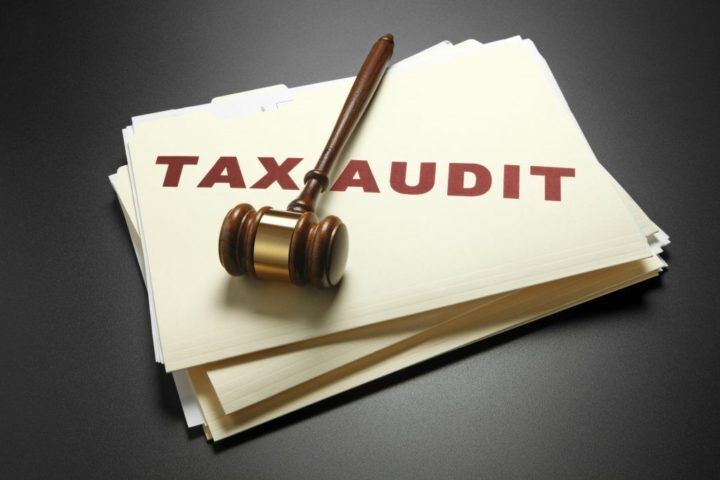Property Tax Dispute Attorneys

Introduction
Owning property can be a rewarding investment, but it also comes with its fair share of responsibilities, including the obligation to pay property taxes. Unfortunately, disputes over property taxes are not uncommon, and navigating the complex legal landscape can be daunting. This is where property tax dispute attorneys come into play, offering invaluable guidance and representation to ensure that your rights are protected and your financial interests are safeguarded.
Property tax dispute attorneys are legal professionals who specialize in handling disputes related to property tax assessments, exemptions, and appeals. They possess in-depth knowledge of the intricate laws and regulations governing property taxation, allowing them to provide expert counsel and effective strategies for resolving conflicts with taxing authorities.
In this comprehensive article, we will explore the role of property tax dispute attorneys, the common scenarios in which their services are sought, and the benefits of engaging their expertise.
Understanding Property Tax Disputes
Property tax disputes can arise for various reasons, including:
- Incorrect Assessments: Taxing authorities may incorrectly assess the value of your property, resulting in an overstated tax bill.
- Exemption Denials: Property owners may be eligible for exemptions or deductions, but these can sometimes be denied by the taxing authority.
- Procedural Errors: Mistakes or irregularities in the assessment or tax collection process can lead to disputes.
- Changes in Property Value: Significant changes in property value due to market fluctuations or renovations may warrant a reassessment of taxes.
Navigating these issues can be complex, and it is often advisable to seek the assistance of a knowledgeable property tax dispute attorney.
The Role of Property Tax Dispute Attorneys
Property tax dispute attorneys play a crucial role in protecting property owners’ rights and ensuring fair tax treatment. Their responsibilities typically include:
- Reviewing Assessments: They carefully analyze property assessments to identify any errors or discrepancies that may warrant a challenge.
- Filing Appeals: If an assessment is deemed inaccurate or unfair, property tax dispute attorneys can file formal appeals with the appropriate authorities.
- Representing Clients: During hearings or proceedings related to the dispute, these attorneys serve as legal representatives, advocating for their clients’ interests.
- Negotiating Settlements: In some cases, property tax dispute attorneys may negotiate settlements with taxing authorities to reach a mutually agreeable resolution.
- Providing Legal Counsel: They offer expert advice on property tax laws, exemptions, and strategies to minimize tax liabilities.
By leveraging their expertise and experience, property tax dispute attorneys can increase the chances of a favorable outcome and potentially save property owners significant sums of money.
Also Read:
https://besraha-news.online/rape-defense-lawyers/
Common Scenarios Requiring Property Tax Dispute Attorneys
While the specifics of each case may vary, there are several common scenarios in which retaining a property tax dispute attorney can be beneficial:
- Appealing High Assessments: If you believe your property has been overvalued, leading to excessive tax obligations, a property tax dispute attorney can help you challenge the assessment and seek a fair re-evaluation.
- Claiming Exemptions: Certain properties or property owners may qualify for exemptions or deductions based on factors such as age, disability, or property usage. Property tax dispute attorneys can ensure that you receive the exemptions you are entitled to.
- Navigating Complex Regulations: Property tax laws and regulations can be intricate and vary between jurisdictions. Property tax dispute attorneys have a deep understanding of these nuances, enabling them to provide tailored guidance and representation.
- Handling Appeals and Hearings: The appeals process often involves presenting evidence, arguing your case before administrative boards or courts, and adhering to strict procedural requirements. Property tax dispute attorneys are well-versed in these proceedings and can effectively advocate on your behalf.
- Resolving Disputes with Taxing Authorities: In some cases, disputes may arise with taxing authorities over issues such as payment deadlines, penalties, or enforcement actions. Property tax dispute attorneys can negotiate with these authorities to reach a resolution that protects your interests.
Benefits of Hiring Property Tax Dispute Attorneys
Engaging the services of property tax dispute attorneys can offer numerous benefits, including:
- Expertise and Experience: These attorneys possess specialized knowledge and experience in property tax law, enabling them to navigate complex legal issues effectively.
- Objectivity and Advocacy: Property tax dispute attorneys provide an objective perspective and serve as dedicated advocates, ensuring that your rights and interests are protected throughout the dispute process.
- Improved Chances of Success: With their legal acumen and familiarity with the system, property tax dispute attorneys can increase the likelihood of achieving a favorable outcome in your dispute.
- Time and Stress Reduction: Resolving property tax disputes can be time-consuming and emotionally taxing. By retaining a property tax dispute attorney, you can minimize the burden and focus on your other responsibilities.
- Cost Savings: While hiring an attorney may incur upfront costs, their expertise can ultimately lead to significant tax savings, potentially outweighing the initial investment.
Finding the Right Property Tax Dispute Attorney
When seeking a property tax dispute attorney, it is essential to consider the following factors:
- Experience and Specialization: Look for attorneys with extensive experience in handling property tax disputes and a track record of success in your specific jurisdiction.
- Reputation and Reviews: Research the attorney’s or firm’s reputation by reading client reviews and seeking recommendations from trusted sources.
- Communication and Accessibility: Choose an attorney who communicates effectively, keeps you informed throughout the process, and is readily accessible to address your concerns.
- Fee Structure: Understand the attorney’s fee structure and ensure it aligns with your budget and expectations.
- Personalized Approach: Select an attorney who takes the time to understand your unique circumstances and tailors their strategies accordingly.
By finding the right property tax dispute attorney, you can increase your chances of resolving your property tax issues efficiently and favorably.
Conclusion
Property tax dispute attorneys play a vital role in ensuring that property owners are treated fairly by taxing authorities. Whether you are facing an inaccurate assessment, seeking exemptions, or navigating complex legal proceedings, these attorneys can provide the expertise and guidance needed to protect your rights and financial interests.
By understanding the role of property tax dispute attorneys, the common scenarios in which their services are sought, and the benefits they offer, you can make an informed decision about engaging their assistance. Remember, resolving property tax disputes can be a complex and daunting task, but with the right legal representation, you can increase your chances of achieving a favorable outcome.
Sources:
- “Property Tax Disputes: A Guide for Property Owners” by The National Association of Property Tax Attorneys (NAPTA) [Reference: https://www.napta.org/resources/property-tax-disputes-guide]
- “Understanding Property Tax Appeals” by the American Bar Association (ABA) [Reference: https://www.americanbar.org/groups/real_property_trust_estate/resources/property_taxes/property_tax_appeals/]







